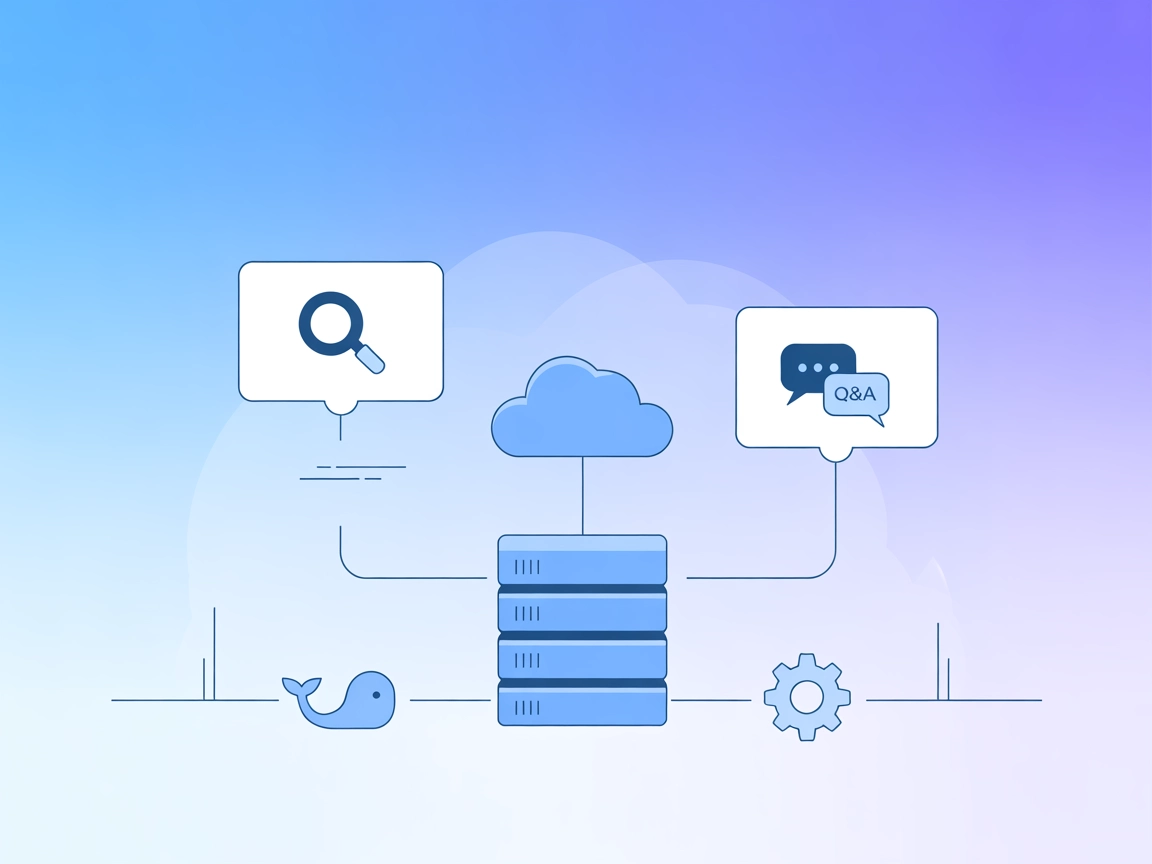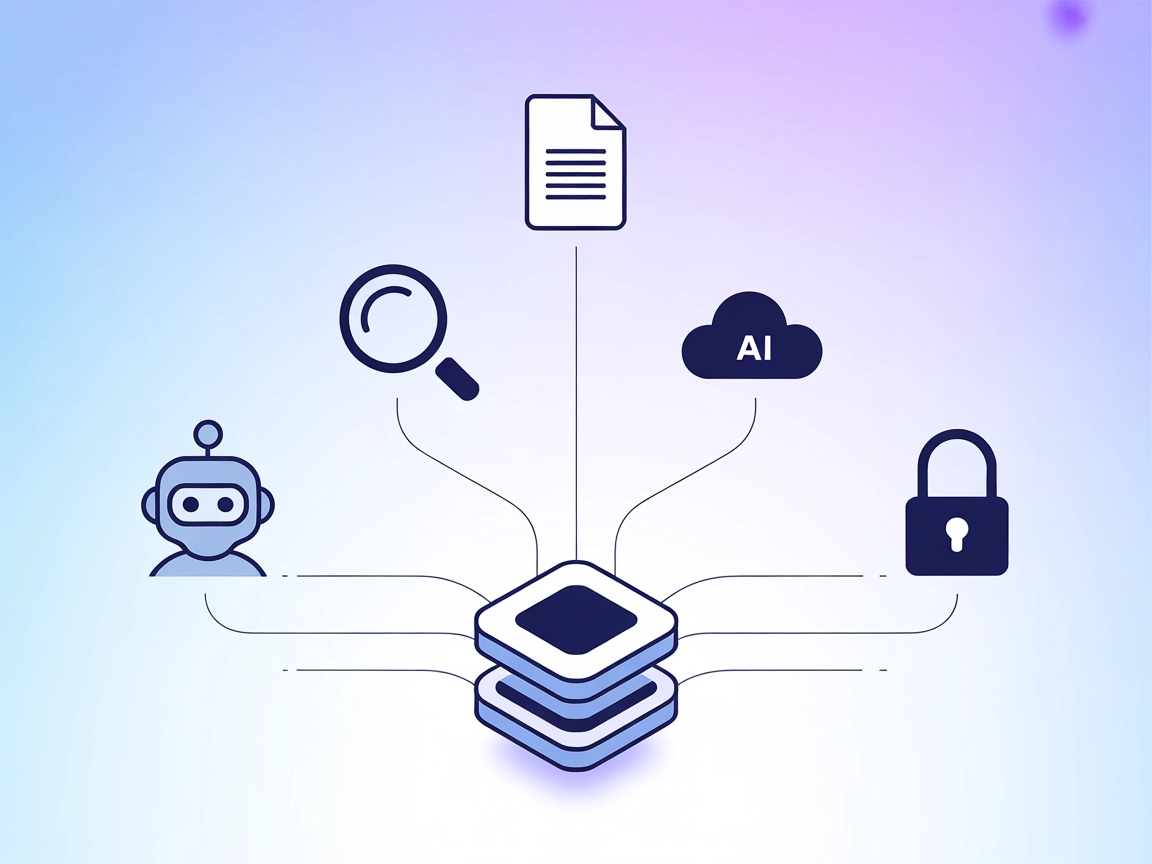
Glean MCP Server Integration
Integrate the Glean MCP Server with FlowHunt to empower your AI assistants with advanced enterprise search and conversational Q&A using the Glean API. Streamlin...

Integrate powerful Lucene-based search and document management into FlowHunt with the Lucene MCP Server. Ideal for scalable enterprise search, knowledge base augmentation, and automated indexing.
FlowHunt provides an additional security layer between your internal systems and AI tools, giving you granular control over which tools are accessible from your MCP servers. MCP servers hosted in our infrastructure can be seamlessly integrated with FlowHunt's chatbot as well as popular AI platforms like ChatGPT, Claude, and various AI editors.
The MCP Lucene Server is a Java-based implementation of the Model Context Protocol (MCP) designed to provide efficient search and retrieval capabilities using Apache Lucene. Acting as an MCP-compliant server, it enables AI assistants and agents to interact with large document repositories for tasks such as full-text search, indexing, and metadata filtering. Through its RESTful API, the Lucene MCP Server allows clients to upsert (add/update), delete, list, and query documents using Lucene’s powerful query syntax. Built on Spring Boot, it is easy to deploy and can be containerized with Docker. This server is ideal for integrating advanced document search and management features into AI-driven workflows or software development pipelines.
No information about prompt templates is provided in the repository.
No explicit MCP resources are described in the repository.
Upsert Tool
/mcp/v1/upsert endpoint.Delete Tool
/mcp/v1/delete endpoint.List Tool
/mcp/v1/list endpoint.Query Tool
/mcp/v1/query endpoint.Status Tool
/mcp/v1/status endpoint.Enterprise Document Search
Developers can integrate the Lucene MCP Server to provide robust, scalable search capabilities over large sets of business documents, making it easy to find relevant files and records.
Knowledge Base Augmentation
Enhance AI assistants by allowing them to query and retrieve information from indexed company manuals, FAQs, or support tickets.
Automated Data Ingestion and Indexing
Streamline workflows by programmatically upserting and updating documents in the Lucene index, ensuring the search engine is always current.
Metadata-based Filtering
Take advantage of Lucene’s ability to filter queries based on document metadata, supporting advanced data retrieval scenarios.
API-driven Search Integration
Facilitate seamless access to document search and management features for other applications or agents via RESTful endpoints.
mvn clean install
{
"mcpServers": {
"lucene-mcp": {
"command": "java",
"args": ["-jar", "target/mcp-lucene-server-0.0.1-SNAPSHOT.jar"]
}
}
}
http://localhost:8080/mcp/v1/status.mvn clean install
{
"mcpServers": {
"lucene-mcp": {
"command": "java",
"args": ["-jar", "target/mcp-lucene-server-0.0.1-SNAPSHOT.jar"]
}
}
}
mvn clean install
{
"mcpServers": {
"lucene-mcp": {
"command": "java",
"args": ["-jar", "target/mcp-lucene-server-0.0.1-SNAPSHOT.jar"]
}
}
}
http://localhost:8080/mcp/v1/status.mvn clean install
{
"mcpServers": {
"lucene-mcp": {
"command": "java",
"args": ["-jar", "target/mcp-lucene-server-0.0.1-SNAPSHOT.jar"]
}
}
}
If your setup requires securing API keys or sensitive information, use environment variables:
{
"mcpServers": {
"lucene-mcp": {
"command": "java",
"args": ["-jar", "target/mcp-lucene-server-0.0.1-SNAPSHOT.jar"],
"env": {
"LUCENE_API_KEY": "${LUCENE_API_KEY}"
},
"inputs": {
"apiKey": "${LUCENE_API_KEY}"
}
}
}
}
Using MCP in FlowHunt
To integrate MCP servers into your FlowHunt workflow, start by adding the MCP component to your flow and connecting it to your AI agent:

Click on the MCP component to open the configuration panel. In the system MCP configuration section, insert your MCP server details using this JSON format:
{
"lucene-mcp": {
"transport": "streamable_http",
"url": "https://yourmcpserver.example/pathtothemcp/url"
}
}
Once configured, the AI agent is now able to use this MCP as a tool with access to all its functions and capabilities. Remember to change “lucene-mcp” to whatever the actual name of your MCP server is and replace the URL with your own MCP server URL.
| Section | Availability | Details/Notes |
|---|---|---|
| Overview | ✅ | |
| List of Prompts | ⛔ | None found |
| List of Resources | ⛔ | None found |
| List of Tools | ✅ | REST endpoints as tools |
| Securing API Keys | ✅ | Example given |
| Sampling Support (less important in evaluation) | ⛔ | Not found |
| Supports Roots | ⛔ |
|---|---|
| Supports Sampling | ⛔ |
Based on the available information, the MCP Lucene Server provides a strong foundation for document search and management but lacks explicit support for prompt templates, resources, roots, or sampling. It is well-documented for setup and usage as an MCP server.
The MCP Lucene Server is a robust, practical MCP implementation for enterprise-grade search and document management. However, the lack of prompt templates, resource definitions, and advanced MCP features like roots or sampling limits its flexibility for more complex, agentic workflows. Overall, it is a solid starting point for integrating Lucene-powered search into AI systems. MCP Score: 6/10
| Has a LICENSE | ✅ (Apache-2.0) |
|---|---|
| Has at least one tool | ✅ |
| Number of Forks | 1 |
| Number of Stars | 0 |
The Lucene MCP Server is a Java-based implementation of the Model Context Protocol that leverages Apache Lucene to provide powerful document search, indexing, and metadata filtering. It is ideal for integrating document management and search into AI workflows.
It offers RESTful endpoints for upserting (adding/updating), deleting, listing, and querying documents, as well as checking server status. These tools allow seamless integration into automated workflows and AI systems.
Typical use cases include enterprise document search, AI knowledge base augmentation, automated data ingestion and indexing, metadata-based filtering, and enabling API-driven document management features.
Use environment variables in your configuration to store and access API keys or sensitive information, keeping your credentials secure and out of version control.
No prompt templates or explicit MCP resources are provided in the repository. The server focuses on document search and management features.
You need Java 11 or higher and Maven 3.6 or newer to build and run the server. Docker support is available for containerized deployment.
Boost your AI workflows with advanced, scalable document search and management. Add the Lucene MCP Server to your FlowHunt setup today.

Integrate the Glean MCP Server with FlowHunt to empower your AI assistants with advanced enterprise search and conversational Q&A using the Glean API. Streamlin...

The Elasticsearch MCP Server bridges AI assistants with Elasticsearch and OpenSearch clusters, enabling advanced search, index management, and cluster operation...

The Needle MCP Server seamlessly connects AI assistants with document management and semantic search via the MCP protocol, enabling automated information retrie...
Cookie Consent
We use cookies to enhance your browsing experience and analyze our traffic. See our privacy policy.